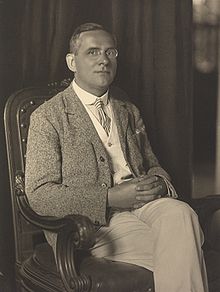Portal:Philosophy/Selected philosopher/50

Moritz Schlick was a German philosopher and the founding father of logical positivism and the Vienna Circle. Schlick worked on his Allgemeine Erkenntnislehre (General Theory of Knowledge) between 1918 and 1925, and, though later developments in his philosophy were to make various of his epistemological contentions untenable, the General Theory is perhaps his greatest work in its acute reasoning against synthetic a priori knowledge. Between 1926 and 1930, Schlick labored to finish Fragen der Ethik (Problems of Ethics), in which he surprised some of his fellow Circlists by including ethics as a viable branch of philosophy. Also during this time, the Vienna Circle published The Scientific View of the World: The Vienna Circle as an homage to Schlick. Its strong anti-metaphysical stance crystallized the viewpoint of the group.
With the rise of the Nazis in Germany and Austria, many of the Vienna Circle's members left for America and the United Kingdom. Schlick, however, stayed on at the University of Vienna: when visited by Herbert Feigl in 1935, he expressed dismay at events in Germany. On June 22, 1936, Schlick was ascending the steps of the University for a class when he was confronted by a former student, Johann Nelböck, who drew a pistol and shot him in the chest. Schlick died very soon afterward.
